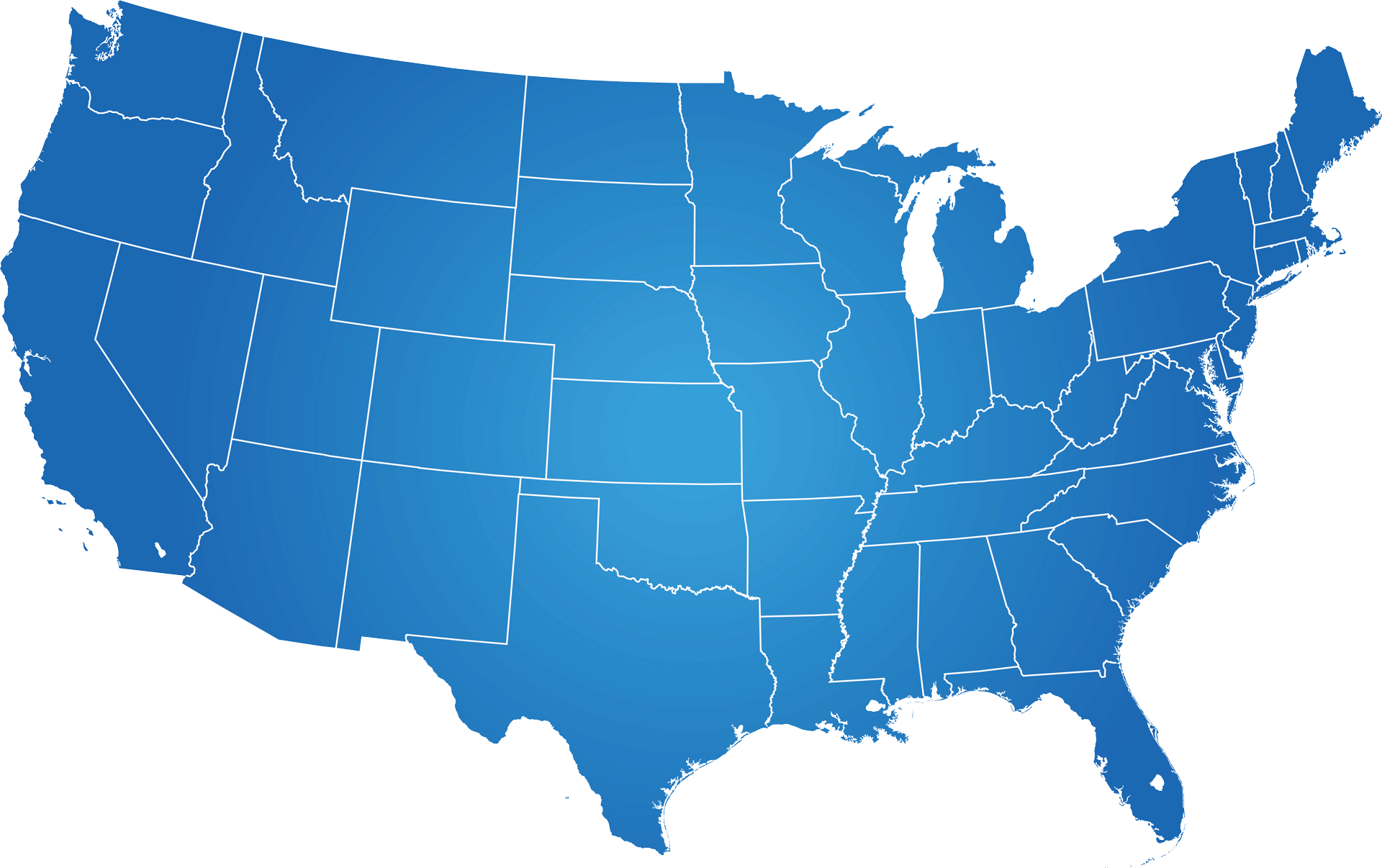Blog Layout
Do you have remote employees that work in any of the following states?
If you have even one employee working in any one of these states, be aware that there are specific laws that you must comply with!
Colorado – Law: Paid Family and Medical Leave (PFML)
- Implementation: 1/1/2023 – 1/1/2024
- Paid Via: EE and ER
- Duration: 80 hours (maximum)
- Reasons:
- Birth and care of a child (to be completed within one (1) year of the birth).
- Placement and care of an adopted or foster child (to be completed within one (1) year of the placement).
- Serious health condition of an employee’s parent, child under the age of eighteen (18), an adult child who is disabled at the time of leave, spouse, partner in a civil union, or registered domestic partner for physical care or psychological comfort.
- Employee’s own serious health condition. An illness, injury, impairment, physical or mental condition that requires inpatient care in a hospital, hospice, or residential medical care facility or continuing treatment by a health care provider. Continuing treatment is a period of incapacity of more than three (3) calendar days, pregnancy, a chronic serious health condition, or permanent long-term condition for which there is no treatment but the patient is under supervision, or multiple treatments without which a period of incapacity would result.
- Active duty military leave when a parent, child, or spouse experiences a qualifying event directly related to being deployed to a foreign country.
- Military caregiver leave for a parent, child, spouse, or next of kin who suffered a serious injury or illness in the line of duty while on active duty. Military caregiver leave includes time for veterans who are receiving treatment within five (5) years of the beginning of that treatment.
- More Information: https://dpa.colorado.gov/about-us/faqs/paid-family-medical-leave-faq
Connecticut – Law: Paid Family and Medical Leave Act (PFMLA)
- Implementation: 1/1/2021 – 1/1/2022
- Description: Deduct 0.5% of employee’s wages beginning 1/1/2021. Benefits available beginning 1/1/2022. Applies to all employers, and sole proprietors and is 100% Employee funded. Notice requirement must be fulfilled by Employer by 7/1/2022.
- Paid Via: EE payroll deduction of 0.5% of income. No ER contribution required.
- Duration: 12 weeks (maximum)
- Reasons:
- Care for a seriously ill family member.
- Bond with a new baby or foster/adopted child.
- Due to serious medical issue.
- Deal with family violence.
- Deal with military deployment of a family member.
- Donate bone marrow, tissue, or organ donation.
- More Information: https://ctpaidleave.org/
Washington D.C. –Law: The Paid Leave Act
- Implementation: 7/1/2020
- Paid Via: ER payment of 0.62% of employee wages
- Duration: 2 – 8 weeks (depending on the reason)
- Reasons:
- Deal with serious medical condition (2 weeks).
- Deal with an ill family member (6 weeks).
- Bond with new baby or child (8 weeks).
- More Information: https://dcpaidfamilyleave.dc.gov/
Massachusetts – Law: Paid Family and Medical Leave (PFML)
- Implementation: 7/1/2019 – 1/1/2021
- Description: Requires specific policies and plans to be offered. State option premiums began to be collected through payroll on 7/1/2019. First quarterly filings due 10/1/2019.
- Paid Via: ER and EE payments – 0.75% of EE salary.
- Duration: 12 – 26 weeks (depending on the reason).
- Reasons:
- Bond with a new baby or child.
- Deal with a serious illness.
- Care for an ill family member.
- Deal with military deployment or a family member who is actively deployed.
- More Information: https://www.mass.gov/orgs/department-of-family-and-medical-leave
- More Information: https://www.sunlife.com/us/For+businesses/Paid+family+medical+leave/Massachusetts
New Jersey – Law: Family Leave Insurance
- Implementation: 7/1/2020
- Paid Via: EE payroll deduction of 0.16% of salary (2020). EE payroll deduction of 0.28% of salary (2021).
- Duration: 12 weeks (maximum).
- Reasons:
- Bond with a new child.
- Care for a seriously ill or injured family member.
- Link: https://www.myleavebenefits.nj.gov/worker/fli/
New York – Law: Paid Family Leave
- Implementation: 2018
- Description: Requires specific policies and plans to be offered. Both state run and private insured options are available.
- Paid Via: EE or ER contribution. Maximum EE payroll contribution is 0.153% of salary without ER contribution.
- Duration: 12 weeks (maximum).
- Reasons:
- Bond with a new child.
- Care for a seriously ill close family member.
- Assist with a military deployment or assist while someone is deployed.
- More Information: https://paidfamilyleave.ny.gov/
New York – Law: Harassment Prevention Training (Local Law 96 of 2018)
- Implementation: 4/1/2019
- Description: Employers with 15 or more employees are required to conduct annual sexual harassment prevention training for all employees.
- More Information: https://www1.nyc.gov/site/cchr/law/sexual-harassment-training-main.page
Oregon – Law: Paid Family and Medical Leave Insurance (PFMLI)
- Implementation: 1/1/2022 – 1/1/2023
- Paid Via: EE and ER contribution.
- Duration: 12 weeks (maximum).
- Reasons:
- Bond with a new child.
- Care for a family member while they recover from a serious illness.
- Deal with issues related to domestic violence, sexual assault, harassment, or stalking.
- More Information: https://www.oregon.gov/employ/PFMLI/Pages/PFMLI-General-Information.aspx
Rhode Island –Laws: Temporary Disability Insurance (TDI) and Temporary Caregiver Insurance (TCI)
- Implementation: 1942 (TDI) and 2013 (TCI)
- Paid Via: EE payroll deduction of 1.1% of salary.
- Duration: 4 weeks (maximum)
- Reasons:
- Bond with a new child.
- Care for a seriously ill family member.
- Deal with a disability or an illness.
- More Information: https://dlt.ri.gov/tdi/
Washington – Law: Paid Family and Medical Leave
- Implementation: 1/1/2019 – 1/1/2020
- Description: Requires specific polices and plans to be offered. State option premiums begin to be collected through payroll on 1/1/2019. First filing deadline was 7/1/2019.
- Paid Via: EE payroll deduction 0.4% of salary. If ER has 50 or more EE’s, the ER must contribute 37% of the 0.4% of EE wages.
- Duration: 12 weeks (maximum)
- Reasons:
- Bond with a new child.
- Care for an ill family member.
- Recover from off-the-job serious illness or injury.
- More Information: https://paidleave.wa.gov/
Washington – Law: Long Term Services and Supports Trust Act
- Implementation: 1/1/2022
- Description: This is a tax that will cost $0.58/$100 of income. If you make $100,000 per year, the tax will start at $580. The more you make, the more you will pay. Once you are on this system you are not able to leave it as long as you live in Washington State. Bi annually the state legislature can vote to increase the tax being charged. If you leave the state you will not receive the benefit you have been paying for, it will be lost. Furthermore, to qualify to receive the $100/day for 365 days (maximum benefit of $36,500) you must lose 3 activities of daily living (eating, bathing, dressing, transferring, walking, & continence).
- Pay Via: Washington workers will pay $0.58 per $100 of earnings. Every EE contributes – No ER contribution.
- Benefit: up to $36,500 over their lifetime
- Types of services that can be paid for via benefit.
- Professional care in your home, a licensed residential facility, or a nursing facility.
- Adaptive equipment and technology, such as wheelchair ramps and medication reminder devices.
- Home safety evaluations.
- Training, pay, and support for family members who provide care.
- Home-delivered meals.
- Care transition coordination.
- Memory care.
- Education and consultation.
- More Information: https://www.dshs.wa.gov/altsa/stakeholders/long-term-services-and-supports-ltss
Out-of-State Compliance Laws Alert by State Chart: Click HERE to download
We're here to help.
Schedule a free phone consultation today.
Latest Insights
© 2024
Advanced Estate & Insurance Services, Inc. CA License #0M90887
Website Design & SEO by RivalMind




